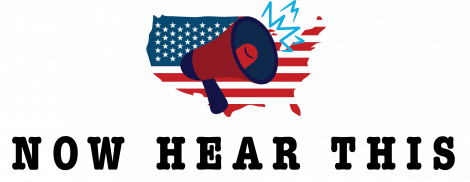Publisher's Corner

Guest Viewpoint
Well, that felt good.
Financial Strategies to Help Young Veterans Build Stability After Service

Adjusting to civilian life comes with many challenges, and financial stability is one of the most critical. Young veterans leaving the military often face a shift in income, new expenses, and unfamiliar financial decisions. From budgeting on a civilian salary to maximizing veteran benefits, understanding how to manage money effectively can ease the transition and set the foundation for long-term success. With the right financial strategies, veterans can build stability, grow their savings, and confidently move forward in their post-military careers.
Understanding Military Tax Benefits
Understanding the unique tax benefits available to you as a veteran can significantly ease your financial transition. For instance, combat pay is excluded from taxable income, which can lower your tax liability. Additionally, allowances like the Basic Allowance for Housing (BAH) and Basic Allowance for Subsistence (BAS) are not subject to federal income tax. If you are a disabled veteran, your disability compensation may also be exempt from taxation. Familiarizing yourself with these benefits and planning accordingly can ensure a more stable financial transition into civilian life.
Boosting Your Civilian Career with Education
One of the most effective ways to enhance your career prospects is by returning to school. Pursuing a business degree and job opportunities can equip you with valuable skills in accounting, communications, and management, which are highly sought after by employers. Online degree programs offer the flexibility to balance work and study, allowing you to maintain employment while advancing your education. This dual approach not only broadens your professional network but also opens doors to new career opportunities, whether you’re aiming for a promotion or considering a career change.
Bridging Military Experience with Civilian Financial Success
Effectively translating your military experience into civilian terms is crucial for job market success. Craft a resume that highlights your military achievements in a way that resonates with civilian employers. Focus on leadership roles and technical skills relevant to your desired career path, such as project management or technical expertise. Tailor your resume for each job application, showcasing the skills and experiences most pertinent to the position. This approach not only demonstrates your adaptability but also your genuine interest in the role.
Upgrading Your Financial Future with High-Yield Savings
Making your savings work harder is essential as you transition to civilian life. Consider high-yield savings accounts, which offer interest rates significantly higher than traditional accounts. While typical savings accounts at large banks might offer as little as 0.01% APY, high-yield options can provide around 4% APY, helping your balance grow faster. These accounts usually have a variable APY, meaning the rate can change, but they still offer a great opportunity to earn compound interest on both your principal and accumulated interest.
Building a Stable Financial Future with Bonds
Incorporating bonds into your investment strategy can provide much-needed stability and consistent returns. Bonds, while traditionally offering lower returns than stocks, have become increasingly attractive due to recent rises in yields across global markets. By diversifying your portfolio with bonds, you can effectively manage risk and reduce the likelihood of negative returns, which is crucial during the early stages of wealth accumulation. This approach not only helps preserve your capital but also ensures a steady income stream.
Navigating Housing Support for Veterans
Securing stable housing is a critical step in your transition to civilian life. Fortunately, each state offers tailored resources to assist veterans. For example, the HUD-VASH program provides a combination of rental assistance and supportive services. In Nevada, veterans can benefit from the Special Housing Adaptation (SHA) Grant, which helps modify homes to accommodate specific disabilities. Additionally, programs like the USDA Rural Development Office offer loans and grants to low-income homeowners in rural areas, ensuring that veterans across various locales have access to essential support.
Practicing for Interviews
Practice answering common interview questions and refine your responses to highlight your skills in a corporate setting. Familiarize yourself with civilian workplace culture, communication styles, and industry-specific terminology to ensure you can confidently engage with hiring managers. The more comfortable you become with corporate lingo and expectations, the smoother your transition into a new role will be.
Financial success after military service isn’t just about securing a paycheck – it’s about making smart decisions that create stability and opportunity. By budgeting wisely, leveraging available benefits, and planning for the future, young veterans can set themselves up for long-term financial health. The transition to civilian life comes with uncertainties, but with the right financial mindset and resources, veterans can take control of their future and thrive in their next chapter.




